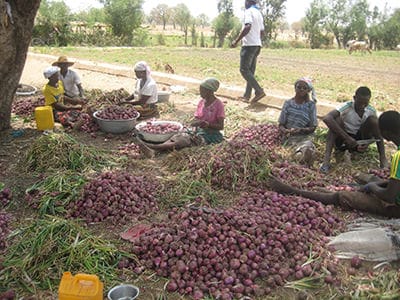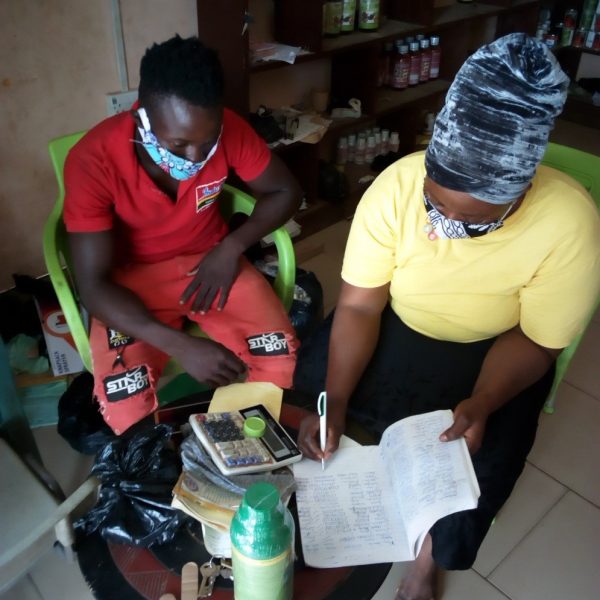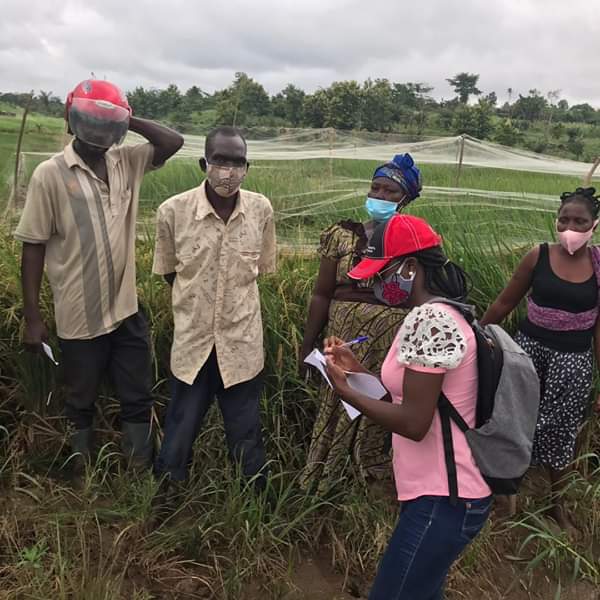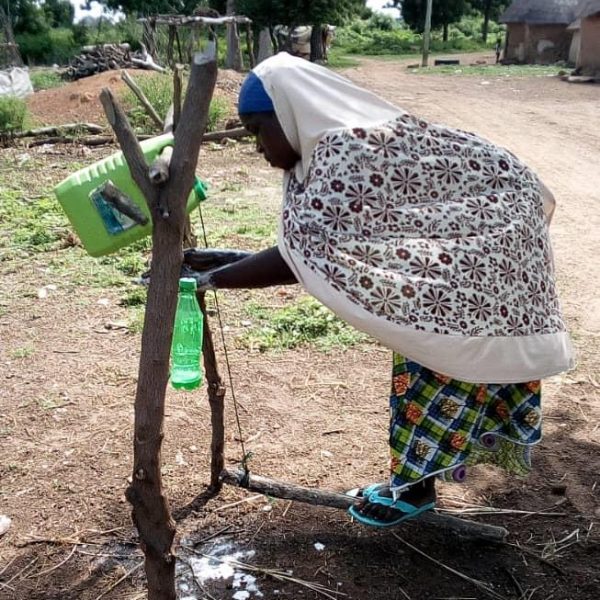Onion farmers in the Upper East Region of Ghana have been introduced to a new rainy season onion variety. With the new variety, the farmers can now cultivate onion all year round to meet market demand and substitute imports from neighboring countries Burkina Faso and Niger.
The introduction of the new ARES variety is a result of adaptation trials conducted through a partnership arrangement between Trias Ghana, (an NGO working with onion farmers in the Upper East Region), Agriseed (local distributor of the French firm Technisem’s seeds) and YARA Ghana Ltd (distributors of plant nutrients). Trias Ghana partnered with Agriculture Extension Agents of the Ministry of Food and Agriculture to run the demonstrations and train the farmers in good agricultural practices. Agriseed provided seed and technical assistance while YARA provided plant nutrition. The trials and demonstrations were facilitated by the DFID funded Market Development (MADE) Programme for Northern Ghana.
The trials were carried out on three rainy season varieties – ARES, ALIZE and JULIO between August and December, 2014. Of the three varieties tried, the ARES variety was found to be the most adaptable to rainy season conditions and able to withstand high temperatures. The two other varieties ALIZE and JULIO could not go through the full adaptation trials. Whereas the germination of the ARES variety was about 85%, that of JULIO was 45% and ALIZE, less than 5%. At the end of the trials, the ARES variety was found to have a vigorous vegetative growth, good bulb size and longer shelf live.
- The adaptation trials and demonstrations were aimed at improving the small-holder farmers’ access to and use of improved varieties of onions enabling them to cultivate more productive varieties of onion that are in high demand on the market for increased incomes and poverty reduction. Nine lead farmers from the Bawku Municipal, Bawku West and Binduri districts and six input dealers participated in the adaptation trials.
- The trials were carried out on three rainy season varieties – ARES, ALIZE and JULIO between August and December, 2014. Of the three varieties tried, the ARES variety was found to be the most adaptable to rainy season conditions and able to withstand high temperatures. The two other varieties ALIZE and JULIO could not go through the full adaptation trials. Whereas the germination of the ARES variety was about 85%, that of JULIO was 45% and ALIZE, less than 5%. At the end of the trials, the ARES variety was found to have a vigorous vegetative growth, good bulb size and longer shelf live.
- Onion is cultivated extensively in northern Ghana during the dry season as a cash crop among poor households. It is a source of employment and income for the youth and women who provide hired labour and also trade in it. The main variety produced in northern Ghana is the Bawku Red. Productivity and yield is, however, affected by the lack of quality seed and irrigation facilities, poor agriculture and farm management practices.
- Unlike their counterparts in neighboring Burkina Faso, Mali and Niger who cultivate onion during the dry and rainy seasons (all year round), farmers in northern Ghana are only able to produce in the dry season. Farmers in the neighboring countries who practice rainy season cultivation are able to do three cropping cycles resulting in higher yields some of which is imported into Ghana to bridge the supply gap.




